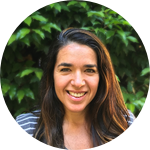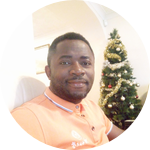About This Project
The research studies the soil and water metrics of solid minerals in two major mining sites( lead mine at Ameka and limestone mine at Nkalagu) Ebonyi state, Nigeria, and the impact of the deposits on crop productivity and livelihood of the local population. The contamination of soil and water resources, mobility of contaminants within the soil profiles and the impact on agronomic productivity will be determined in the field and laboratory.
Ask the Scientists
Join The DiscussionWhat is the context of this research?
The research will be carried out in Ameka lead and Nkalagu limestone mine and non-mine sites. Soil surface samples of 0-15 and 15-30cm will be collected at ten points at the mined and non-mined sites of the two locations, resulting to a total of 80 surface samples. Soil profile will also be studied in situ and sampled at regular intervals of 20cm down the profile. Water samples will be collected from the streams, wells, and boreholes, representing the major source of water for domestics and irrigation in the community. Plant samples in the mine and non-mine sites will be collected. The farmers within the community will be interviewed on the major land uses, especially mining activities, and how they impact their environment, agriculture, and socio-economic life.
What is the significance of this project?
Metals released to the atmosphere from mining activities travel long distances and are deposited on the soil, vegetation, and water bodies. Indeed, unlike organic contaminants, most heavy metals are not biodegradable, and their total concentrations and eco-toxicological effects persist for a very long period after their deposit. This research in both sites will provide adequate information on the level of soil degradation and contamination of the water resources. The impact of the deposits on crop productivity and the safety of edible crops will equally be known. The study will equally acquaint us with the socio-economic impact of the mining activities. The findings of the research will inform the remediation strategies to be adopted.
What are the goals of the project?
The goal of the project is to understand the physical and chemical properties of soils of these mine sites, the level of contamination and degradation of these soils, the mobility of contaminant within the soil profile, the level of contamination of the water resources and the impact on agronomic productivity and proffer solution to the problem.
Budget
My budget items will help me complete my research project in the following ways: Traveling to the mine sites with personnel will make it possible to sample the water resources and soils of the mine sites and non-mine sites for the two locations. The materials and supplies such as the core samplers, white gallons, pocket thermometer, auger, mallet, GPS, marker, and bags will also be used during sampling in the field. Printing of papers for corrections will make the writing and editing of the result and discussion good. Laboratory analysis of the soils and water samples collected in the field will arm us with the true concentration of these minerals in both bodies. The personnel will assist in digging the soil profile and collecting soil and water samples. Publication of research findings will make it possible for the information to be disseminated.
Endorsed by
 Project Timeline
Project Timeline
Research was developed by March 2021. Literature review started on March 2021 and ongoing; the Field survey and preparation of the survey sites for study are currently being done. Field sampling will be carried out, and samples will be taken to the laboratory for analysis between July and August 2021. The Statistical analysis will span from August to September, 2021. Preparation of manuscript and submission to peer review journal will be done by December, 2021.
Mar 01, 2021
Development of research and literature review started in March 2021 and still ongoing
Jun 03, 2021
Field Survey
Jun 17, 2021
Preparation of survey sites for study
Jun 26, 2021
Project Launched
Jun 30, 2021
Field sampling
Meet the Team
Egondu Umeobi
A Soil scientist, interested in environmental soil science research. My passion for environmental soil research was instigated when I visited the southeastern, Nigeria. I noted that most of the agricultural lands where often polluted by contaminants. My desire to solve problems related to this prompted me to study soil science.
During my undergraduate. I was interested in anthropogenic
activities on soil quality and the ecosystem. This prompted me to
undertake research titled: "Influence of land use on soil physicochemical properties in semi-humid Nsukka area of Nigeria." In this work, the
influence of selected land-use types (oil palm plantation, rubber
plantation, grassland, and cassava farm) on soil physicochemical properties
of coarse-textured, acidic soils in southeastern Nigeria were assessed, focusing on soil nutrients availability, improvement, and sustainable use. From the study's findings, it was concluded that land-use types influenced soil physical and chemical properties.
One of the most renowned authors and researchers in soil science, today -Prof. Rattan Lal (Winner of the world soil prize, 2018 and winner of the world food prize 2020) once noted in their work with other workers that one of the ways of addressing the disruption of the food chain caused by the covid19 pandemic is by focusing on researches in soil restoration through nutrients cycling, carbon sequestration and minimizing environmental pollution. This is why I developed this present research to enable us solve this problems. Having studied soil science I have no doubt that through rehabilitation of degraded soils, food security, environmental protection and climate mitigation can be achieved. Let's protect our soils.
Additional Information
The achievement of gender equity and elimination of the bias in academia have been a long-standing struggle. While this bias is perceived in virtually all disciplines, the impacts and stereotypes are particularly more pronounced in the field of science , technology, Engineering and mathematics (STEM). This particular experience in STEM can be traced to the the ill structure in the discipline’s participation and recognition process. This structure falsely projects STEM to be masculine and able-bodied and thus has to a great extent led to the denial of women ( significantly black women), non-binary people of colour from career advancement in STEM. A close look at the STEM workforce in Nigeria and the world in general affirms the existence of gender bias which does not reflect the population from which this workforce is drawn. While the impact of this injustice can easily be ascertained in developed nations where there is access to data and interpretation, it’s impact on developing nations is even more mind-bugling. In Nigeria for instance, the enrollment of women in STEM is generally low compared to the significant number of women that makes up the country’s population. This is a thing of notable concern because it is difficult in the present day society to address issues of national development without recourse to gender factor. The bigger fear is that this exclusion may even impact more on the future generations if not timely stemmed as women are indispensable in nation building. The cumulative impact of this long societal anomaly is already telling on the Nigerian female folks who out of fear of intimidation, rejection, and discrimination tend to shy away from STEM. The launch of championing bodies like VanguardSTEM and the Intersectional Scientific Methodology (ISM) is timely and commendable. My project, “Soil and water metrics assessment of solid minerals in mine sites and the impact on agronomic productivity in Ebonyi State, Nigeria,” will help in changing the perception and the fallacy that STEM research is an exclusive reserve for the masculine gender. First, the research which is to be run in two different mining sites (Nkalagu limestone mine and the Ameka lead mine) dominated by men will leave a positive impression on the field workers , laboratory scientists, colleagues (male and female) on the dynamic approach and the ability of women to handle research in STEM. The field work which will definitely engage the services of men and women will bring closer to them the managerial capabilities of women even in executing STEM research in difficult terrains and may motivate them to encourage their wards. This will help in bridging the gender gap in STEM studies and ultimately eliminate the bias therein. I am optimistic that this research is going to change the mentality of naysayers - those who say that women cannot carry out successful STEM research in difficult terrains like their male counterparts. Those who doubt the analytical prowess and radical judgment of women will be educated. More importantly, this research will go a long way in erasing the age-long fear in women in undertaking research in STEM and may also serve as a morale boost to my peers, friends and black women community in general who wish to pursuit a career in STEM. This research will be carried out with men and women as observers. Their experience in the sites, laboratories, computer houses will help change the narrative. My active involvement in the research and publication will help me become a better VanguardSTEM advocate and ambassador in my environment and beyond. I believe this research will help highlight the dynamism of women approach to complex tasks and the sustained tenacity in achieving set goals even in STEM. This research will encourage young girls of black origin and non-binary people of color to sustain and pursuit their dreams in STEM. Benefiting and participation in VanguardSTEM program will unarguably bring the values and dreams of VanguardSTEM and Intersectional Scientific Methodology to the knowledge of many around me and could help them strive for excellence in STEM knowing that they have a voice.
Project Backers
- 7Backers
- 108%Funded
- $4,271Total Donations
- $610.14Average Donation


